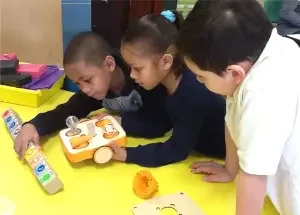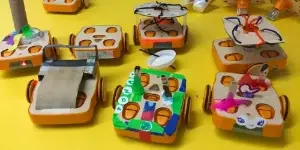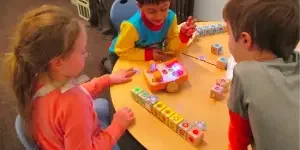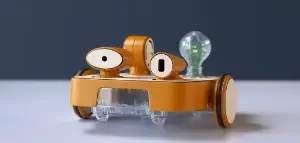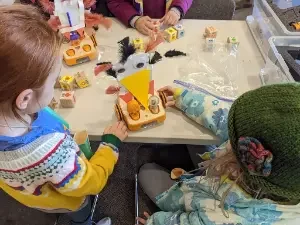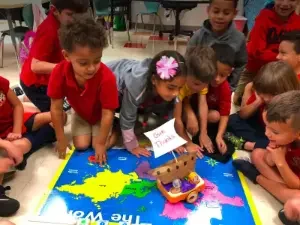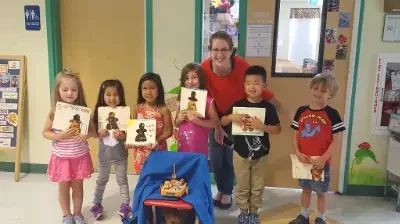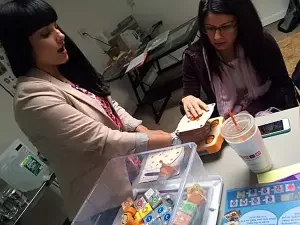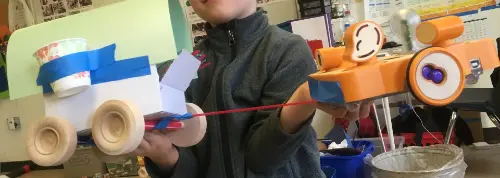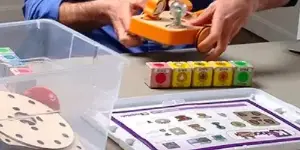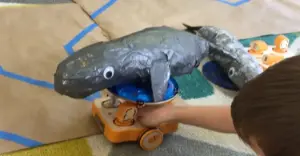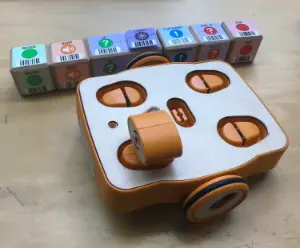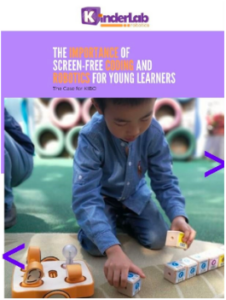View from the classroom: Riverside Presbyterian Day School
Debbie Rogers is the Director of Instructional Digital Design at the Riverside Presbyterian Day School in Jacksonville, Florida. She kindly took the time to speak with us about her class and how her students are working with KIBO.
Debbie came across KinderLab Robotics and KIBO following the introduction of Scratch Jr. to her school. After meeting with our team, hearing about the research behind KIBO’s development and seeing KIBO in action, Debbie knew that KIBO would be a great fit.
“To me, what really makes it powerful is that it’s designed developmentally, not just to be a marketable product. The research and the physicality of the wooden blocks are comfortable to a traditional teacher,” said Debbie about her choice to invest in KIBO for her school.
Riverside Presbyterian Day School is dedicated to introducing coding to children. This year more children and teachers are spending time on STEAM (science, technology, engineering, arts and math), and have access to a designated STEAM room at the school. Debbie, her team, and the teachers promote a broader design systems mindset amongst the students without a focus on specifics such as coding fundamentals. From these programs children learn creatively to understand sequences and to solve problems systematically. With KIBO the Riverside Presbyterian Day School cultivates curiosity for the technical world, teaches problem solving and helps students to learn hands-on concepts such as cause-and-effect, sequencing and loops.
Robotics and KIBO were introduced to students by taking students’ previous stories, which had been made using Scratch Jr., and then helping the students make stories and characters come to life in the physical world. Through this method, young students get to experience and compare computer-based memory to reading and scanning a new program.
Debbie and her team have used KIBO with preschoolers, kindergarteners, second and third graders. Debbie feels that this resonates with the developmentally-appropriate nature of KIBO, and proves the importance of open-ended play in early education. The younger children were able to build KIBO and start programming in minutes, while the older children—used to reading and following set instructions—took more time, asked more questions and engaged differently.
“KIBO is certainly very-well designed for the younger mind, the 4-7 year-old age group that the team at KinderLab Robotics wanted to create it for. KIBO allows inductive, constructive learning. I don’t need to give the students instructions first. Instead we’re deriving our own instructions and creating our own definitions. It’s exploratory and a very open way to teach and to bond with students.”
To learn more about incorporating KIBO into your classroom, please get in touch today.

